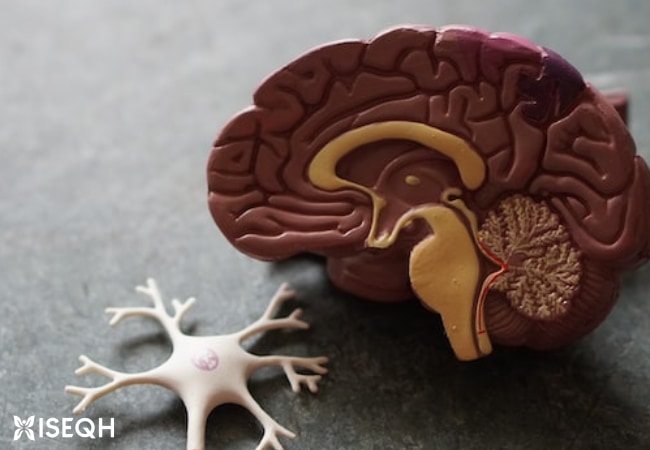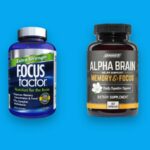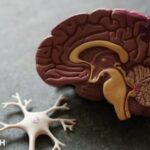
Table of Contents
Introduction
This article will examine the dangers of nootropics and how likely they will cause brain damage. First, we will take an in-depth look at many studies investigating nootropics’ effects on human cognition and analyze what these studies have taught us about the possible dangers of nootropic use. We will also discuss how risky it is to take nootropics during pregnancy or while breastfeeding. Finally, we will list some precautions users should take when deciding whether to use nootropics.
What Are Nootropics?
Nootropics are a class of “smart drugs” that can boost cognitive functions such as memory, creativity, and learning ability. Students often use them to help them study more effectively and improve their academic performance. They may also be used by people suffering from certain brain conditions to improve their symptoms.
Although nootropics have many beneficial effects when used correctly, they can also cause side effects in some people.
Nootropics Side Effects
Nootropics can have various side effects, depending on which particular nootropic you use and what dosage you take. Some of the most common side effects of nootropics include:
Insomnia
Sleep deprivation can lead to serious health problems, including an increased risk of developing depression, obesity, high blood pressure, diabetes, high cholesterol, and poor mental health. If you have trouble sleeping while using nootropics, it may be a good idea to lower your dosage or take a short break from using them for a while.
Anxiety
Some people may experience anxiety, nervousness, panic attacks, or even psychotic episodes while taking certain nootropics. Suppose you are feeling anxious or nervous after taking your nootropics. In that case, it may be a good idea to stop taking them for a while and try some other form of cognitive enhancement.
Nausea
Nausea is a relatively common side effect of taking nootropics. Suppose you experience nausea after taking your nootropics. You can try taking it with food to help reduce or prevent this side effect.
Headaches
Headaches can also be a side effect of taking certain nootropics. For example, suppose you take your nootropics and experience frequent headaches. In that case, you may want to reduce your dosage or take a break from them together to see if this helps.
Dizziness
Dizziness is also a common side effect of taking nootropics. If dizziness occurs while taking your nootropics, you may want to stop taking them for a short time and see if that helps. In most cases, dizziness subsides after you are no longer taking the nootropics.
Should You Take Nootropics?
Even the minor side effects nootropics may cause can be an unpleasant experience for some people. It is important to remember that nootropics are not designed to have these side effects and should not be expected to do so. In most cases, nootropics do help. Nootropics are a safe and effective way to improve your memory and cognitive performance without all of the unpleasant side effects of prescription and over-the-counter drugs. However, everyone is different, and nootropics are not suitable for everyone.
Symptoms of Brain Damage
Here are the most common symptoms of brain damage:
Irritability – not responding to commands or unexpected behavior; throwing things or breaking objects for no apparent reason; excessive irritability
Irregular sleep patterns (insomnia) – cause memory loss and sluggish thinking because your brain has not had a chance to regenerate during sleep.
Rapid Eye Movement Sleep Behavior Disorder (RBD) – sleep disorder that is characterized by abnormal movement behaviours experienced during REM sleep, the most dream-like stage of sleep.
Can Nootropics Cause Brain Damage
Nootropics are considered “safe” because very little is known about how they affect the brain. Although there have been no reports of long-term negative effects from taking nootropics, there is still more research that needs to be done in this area before it can be definitively said that there are no harmful effects from taking these supplements. According to some experts, it is still too early to make a blanket statement about the safety of nootropics. Until more information is available about the effects of nootropics on the human body, people should use them only under the supervision of a physician who can monitor their progress and ensure that there are no adverse effects on their health and well-being.
Nootropics For Brain Damage & Brain Injury
Citicoline
Also known as CDP-choline or N-acylethanolamine (NAE), this substance is the primary substance in breast milk that enhances the development of the central nervous system of the baby’s brain. It has also improved memory and learning abilities and protects brain cells from damage. Research has also shown that citicoline can reduce the occurrence of migraines as well as relieve anxiety and pain caused by rheumatoid arthritis.
Because citicoline is so safe to consume and its effects are well studied, many researchers and scientists have started recommending it to people with Alzheimer’s and other cognitive disorders. However, scientists still have a long way to go before fully understanding the mechanisms behind citicoline’s beneficial effects on the brain and finding a way to turn it into a cure for Alzheimer’s disease.
Bacopa Monnieri
It is often used to treat mental health conditions such as anxiety and depression. It also enhances the body’s ability to cope with stress and boosts cognitive functions such as memory and concentration. In addition, Bacopa Monnieri is sometimes used to prevent cognitive decline in the elderly and to treat neurological disorders such as epilepsy and Alzheimer’s. However, research on its therapeutic properties is still in its infancy and its safety and effectiveness have yet to be fully established. Therefore, anyone considering taking Bacopa Monnieri should speak to their doctor first to determine whether it is safe for them to take.
Noopept
Noopept is a synthetic compound that works like naturally occurring neurosteroids such as beta-endorphin and NGF (nerve growth factor). Studies have shown that it enhances memory and learning new information. It may also play a role in repairing damaged neurons and reducing the symptoms of brain damage and neurodegenerative conditions like Alzheimer’s and Parkinson’s. Some researchers have even suggested that it is an effective treatment for spinal cord injury. Although no studies have confirmed these conclusions, Noopept is still widely prescribed in Russia and several other Eastern European countries for treating various mental and neurological conditions.
Lion’s Mane Mushroom
Traditional medicine has used Lion’s Mane mushrooms for thousands of years to treat a variety of health conditions including asthma, diabetes and depression. More recently, research has revealed that it can also improve memory function and slow the progression of Alzheimer’s disease. The compounds found in Lion’s Mane are thought to mimic the effects of the Nerve Growth Factor (NGF), which plays a key role in developing new nerve cells in the brain.
Phosphatidylserine
PS is the most abundant phospholipid (fat) in the brain. It is involved in helping to transmit signals between brain cells (neurons). Research has shown that supplementing your diet with PS can help to boost cognitive function and prevent age-related memory loss. Several studies have also shown that it can help to improve focus and reduce symptoms of anxiety and depression.
Frequently Asked Questions (FAQs)
Is Alpha Brain good for concussion?
Alpha Brain may help improve memory, attention, learning, and focus, as well as improve mood and promote relaxation. However, it is important to talk to your doctor before taking it if you have a concussion or a recent head injury, as some safety concerns are associated with it.
Can Lion’s Mane repair myelin?
Not all scientists agree that Lion’s Mane can repair myelin, though some have shown some evidence that it can. More research is needed to confirm this. There is some evidence, however, that it may help to reduce the symptoms of cognitive decline associated with age by increasing the production of the Nerve Growth Factor (NGF) in the brain.
KEY TAKEAWAY
Aging leads to the decline of various brain functions. Memory loss, cognitive abilities reduction, and attention span are common symptoms of aging.
Although some research has shown that you can fight the aging process by maintaining a healthy diet and exercise regime, many supplements on the market claim to help improve memory and cognition.
Alpha Brain and Lion’s Mane mushrooms are two of the most popular. Although the U.S. FDA does not approve them for any of these uses, many people have taken them successfully without any adverse side effects.








